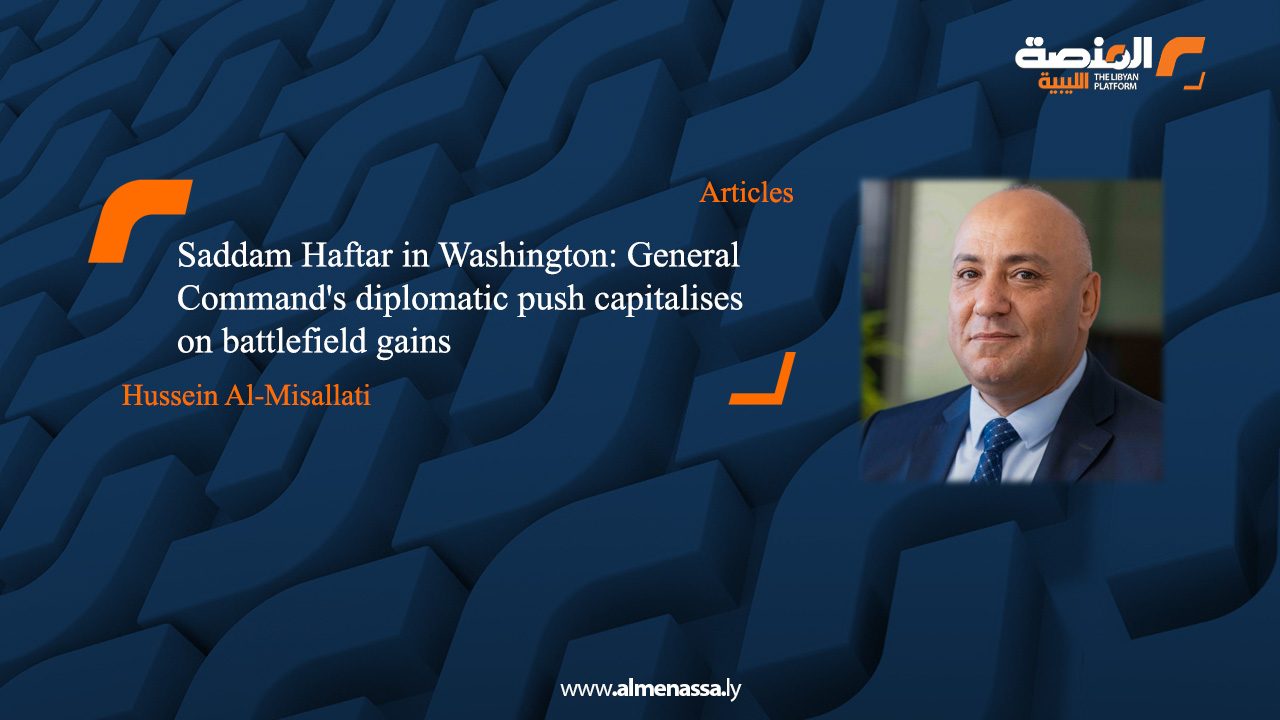Lieutenant General Saddam Haftar’s recent visit to Washington, representing his father Field Marshal Khalifa Haftar, the General Commander of the Armed Forces, has ignited significant local interest, signalling a potential shift in international engagement with the protracted Libyan crisis. His meetings at the US State Department underscore a renewed and intensifying international appetite for resolving the country’s deep-seated divisions.
The official visit to the heart of American diplomacy served to highlight the ascendant role of the General Command of the Armed Forces on the international stage. This comes at a crucial juncture, coinciding with a renewed American focus on the Libyan file and a stated desire to foster stability and the unification of Libya’s fractured institutions.
During his diplomatic foray, Lieutenant General Saddam Haftar engaged with key figures within the US administration, including Tim Lenderking, the Principal Deputy Assistant Secretary for the Bureau of Near Eastern Affairs, Judd Devermont, Special Assistant to the President and Senior Director for African Affairs and the Middle East, and Ambassador Richard Norland, the US Special Envoy to Libya. Discussions spanned a range of critical issues, from security strategies and efforts to forge a unified Libyan military, to support for vital sovereign entities such as the National Oil Corporation and the Central Bank of Libya.
This significant diplomatic outreach follows a period of notable successes on the ground for the General Command of the Armed Forces. Having established a semblance of stability across a substantial 80% of Libyan territory, following a series of decisive campaigns against terrorist organisations, oil smuggling networks, and the insidious trades of human trafficking, illegal immigration, and organised crime, their battlefield achievements have demonstrably altered the General Command’s standing at the negotiating table and within the broader landscape of international politics.
Perhaps the most striking aspect of this important Washington meeting is its profound political significance. After a period where some international powers exhibited cautious engagement, or even appeared to disregard the pivotal role of the General Command, the recognition of its capacity to exert influence, make critical decisions, and engage in meaningful negotiations has become an undeniable reality. Events on the ground have underscored that the General Command, since launching its “Just Peace” initiative in 2020, has adhered to a discernible roadmap predicated on achieving comprehensive security, safeguarding Libya’s territorial integrity, and constructing a robust and unified national state.
Against the backdrop of persistent political fragmentation and security vacuums that plague the west of the country, the General Command has positioned itself as an active, reliable, and, crucially, an indispensable party in any enduring and comprehensive resolution to the Libyan quagmire. This is particularly true concerning the unification of the military establishment, a complex and sensitive file that arguably necessitates a clear vision and direct oversight from the General Command to achieve tangible progress.
Lieutenant General Saddam Haftar’s recent visit to Washington transcends the realm of routine diplomatic manoeuvring. Instead, it represents a significant milestone in the delicate process of reshaping Libyan-American relations on a new footing of parity and mutual respect. This recalibration aligns with the core principles and national vision of the General Command, which unequivocally prioritises the unity, sovereignty, security, stability, and paramount interests of Libya above all other considerations.
Through its integrated political and military strategies, the General Command continues to solidify its position as a genuine force for equilibrium and stability within Libya, navigating the turbulent currents of regional and international conflicts and machinations. Thus, its influence, despite the persistent storms and challenges, is steadily anchoring itself on the shores of international decision-making, buoyed by a significant reservoir of on-the-ground victories and successes that are increasingly difficult for the international community to ignore or underestimate.


